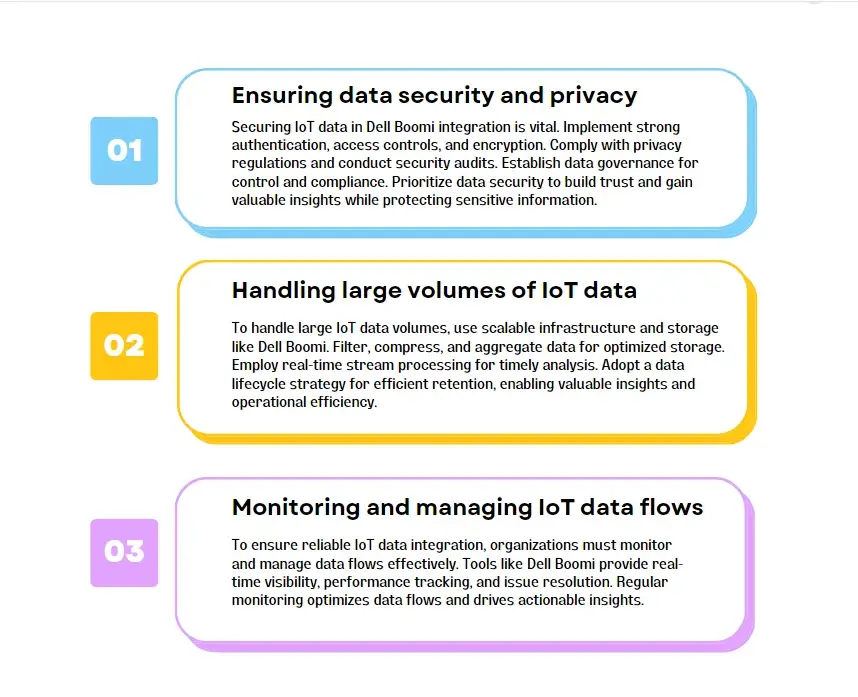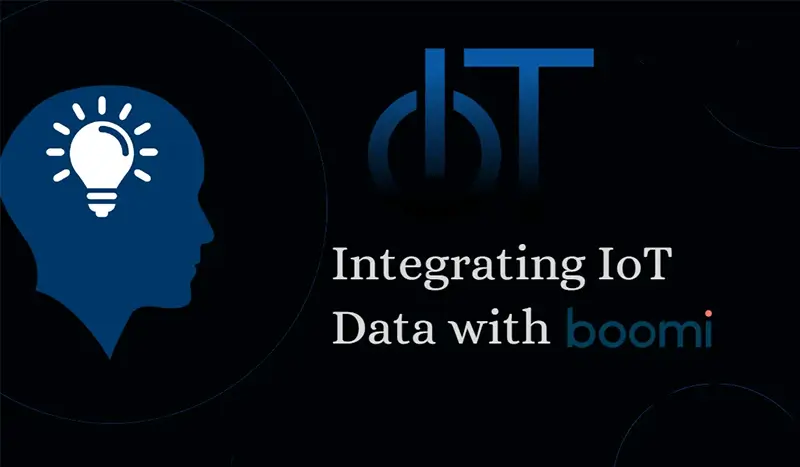Overview of IoT (Internet of Things)
The Internet of Things (IoT) is a revolutionary concept that connects devices, allowing them to share data and transform industries. With IoT, devices can communicate and interact with each other, enabling new levels of productivity, safety, and innovation across various sectors such as smart cities, healthcare, and transportation. The power of IoT lies in its ability to collect and leverage abundant data generated by these interconnected devices.
By leveraging IoT data, organizations gain valuable insights that drive decision-making and enhance operational efficiency. The data collected from IoT devices provides a wealth of information about the environment, equipment performance, user behavior, and more. This real-time data enables organizations to make informed decisions, optimize processes, and drive innovation.
The impact of IoT is constantly evolving and shaping the future of technology and industries. It has the potential to revolutionize how we live and work, creating smart homes, autonomous vehicles, and connected healthcare systems. IoT’s ability to connect and share data opens up endless possibilities for improved efficiency, safety, and convenience.
To fully unlock the potential of IoT, integration is crucial. This is where Boomi Integration Solutions come into play. Dell Boomi software is a powerful integration platform that enables seamless connectivity and data consolidation from IoT devices. By integrating IoT data with existing sources, Dell Boomi simplifies the process, allowing organizations to harness the full potential of IoT.
Role of Boomi Integration Solutions in Data Integration
Dell Boomi is a vital cloud-based integration platform for IoT data. It seamlessly connects systems, enabling smooth data flow. Integrating IoT data with Dell Boomi data integration unlocks its full potential. It consolidates and transforms data for analysis, real-time processing, and integration with existing systems. This integration drives insights, informed decisions, and operational efficiency by leveraging IoT and Dell Boomi’s capabilities.
Importance of integrating IoT data with Dell Boomi
Integrating IoT data with Dell Boomi unlocks IoT investments. Boomi Integration Solutions seamlessly connect IoT devices with other systems, enabling real-time data analysis and operational efficiency. Its scalability and security handle increasing IoT data volume. Integration with Dell Boomi drives innovation, leveraging AI and ML for valuable insights. It empowers digital transformation and a competitive edge.
Types of data generated by IoT devices
IoT devices generate diverse data types: sensors (temperature, pressure, etc.) monitor the environment, motion data tracks movement, device status data indicates performance, multimedia data enables visual and auditory analysis, and user-generated data captures preferences and behavior. These data types support real-time decision-making, advanced analytics, and predictive insights.
Challenges in handling and integrating IoT data
Integrating IoT data poses challenges such as managing high volumes and real-time processing, handling diverse data formats, ensuring data accuracy and security, achieving interoperability, scaling infrastructure, establishing governance policies, and extracting valuable insights through advanced analytics. Overcoming these challenges is essential for organizations to harness the full potential of IoT data and drive business success.
Integrating IoT Data with Dell Boomi
Integrating IoT data with Dell Boomi unlocks insights, drives efficiency, and enables real-time analysis. Dell Boomi software simplifies the process by connecting IoT devices to systems and applications, offering data transformation, automation, and scalability. It empowers organizations to make data-driven decisions, optimize processes, and innovate with IoT capabilities, fostering digital transformation.
1. Configuring Dell Boomi for IoT data integration
1.1 Creating connections: Establishes communication with IoT devices or platforms.
1.2 Defining data formats: Specifies formats (JSON, XML, etc.) for seamless transformation.
1.3 Designing integration processes: Maps, transforms, and enriches data for harmonization.
1.4 Implementing event triggers: Captures and processes data based on real-time events.
1.5 Enabling scalability: Configures Dell Boomi to handle increasing data volumes.
1.6 Implementing security measures: Protects IoT data during integration.
1.7 Testing and validation: Ensures smooth data flow and verifies accuracy.
2. Setting up Dell Boomi environment for IoT integration
To set up the Dell Boomi environment for IoT integration, follow these steps:
2.1 Creating a Dell Boomi account.
2.2 Configuring connectivity to IoT devices and data sources.
2.3 Defining document types for data formats.
2.4 Designing integration processes using Dell Boomi’s visual interface.
2.5 Setting up event triggers for real-time data capture.
2.6 Implementing security measures.
2.7 Testing and deploying integration processes.
These steps enable organizations to establish a robust Dell Boomi environment for seamless IoT integration, facilitating efficient data exchange and transformation between IoT devices and other systems.
3. Establishing connectivity with IoT devices
IoT device connectivity is crucial for integrating IoT data. It involves:
3.1 Configuring connections between the Dell Boomi platform and IoT devices by defining protocols.
3.2 Authentication and connection settings: This ensures reliable data capture and transmission, enabling seamless integration with other systems.
Establishing this connectivity empowers organizations to leverage the full potential of IoT devices, derive valuable insights from IoT data, and make informed decisions for enhanced operational efficiency.
Best Practices for IoT Data Integration with Boomi
When it comes to IoT data integration with Dell Boomi, following Dell Boomi best practices is essential for successful outcomes. By adhering to these best practices, organizations can optimize their IoT data integration with Dell Boomi, drive operational efficiency, and derive valuable insights for informed decision-making.

Use Cases and Examples
Dell Boomi enables IoT integration across various industries, including smart home automation, industrial IoT, fleet management, healthcare IoT, and smart cities. It connects and integrates IoT devices to enable real-time monitoring, automation, and data-driven decision-making. With Dell Boomi, organizations can optimize energy consumption, improve operational efficiency, enhance patient care, and enable sustainable city initiatives.
1. Industry-specific use cases for IoT data integration with Dell Boomi
1.1 Manufacturing: Integrating IoT data from sensors on production lines allows manufacturers to monitor equipment performance, detect anomalies, and optimize production processes for improved efficiency and reduced downtime.
1.2 Retail: Integrating IoT data from smart shelves, beacons, and point-of-sale systems helps retailers analyse customer behavior, optimize inventory management, and deliver personalized shopping experiences.
1.3 Healthcare: Integrating IoT data from medical devices, wearables, and patient monitoring systems enables healthcare providers to remotely monitor patient health, improve care coordination, and enhance patient outcomes.
1.4 Transportation and Logistics: Integrating IoT data from vehicles, fleet management systems, and logistics platforms allows organizations to track shipments, optimize routes, and improve overall supply chain visibility and efficiency.
1.5 Energy and Utilities: Integrating IoT data from smart meters, sensors, and grid infrastructure enables utilities to monitor energy consumption, detect power outages, and optimize energy distribution for better resource management and cost savings.
1.6 Agriculture: Integrating IoT data from soil moisture sensors, weather stations, and crop monitoring systems helps farmers optimize irrigation, predict crop health, and enhance overall agricultural productivity.
2. Real-world examples of successful implementations
2.1 Coca-Cola: Coca-Cola integrated IoT data with Dell Boomi to optimize vending machines. Real-time insights improved restocking, maintenance, and customer satisfaction.
2.2 Siemens: Siemens used Dell Boomi to integrate IoT data for smarter buildings. Insights improved energy usage, maintenance, and occupant comfort for sustainable buildings.
2.3 ABB: ABB integrated IoT data with Dell Boomi for improved industrial automation. It enhanced efficiency, reduced downtime, and enabled predictive maintenance, resulting in cost savings and increased productivity.
2.4 Medtronic: Medtronic integrated IoT data with Dell Boomi for remote patient monitoring, improving care and health outcomes.
2.5 Shell: Shell improved oil and gas operations with IoT data integration via Dell Boomi. Real-time insights from IoT sensors enhanced efficiency, safety, and decision-making.
Conclusion
IoT data + Dell Boomi = Digital transformation. Insights, optimization, experiences, innovation. Dell Boomi’s robust capabilities scale, secure, support.
OdiTek is committed to providing exceptional services for integrating IoT data with Dell Boomi. The combination of IoT data and Dell Boomi unlocks the potential for digital transformation, offering valuable insights, optimization opportunities, enhanced user experiences, and innovation.
At OdiTek, we recognize the robust capabilities of Dell Boomi, which enable seamless scalability, robust security, and comprehensive support. By adhering to Dell Boomi Deployment best practices, we help organizations unleash the true potential of IoT by seamlessly connecting and integrating IoT devices using Dell Boomi. This empowers our clients to leverage the wealth of data generated by IoT devices, gaining valuable insights, improving operational efficiency, and delivering personalized experiences to their customers.







